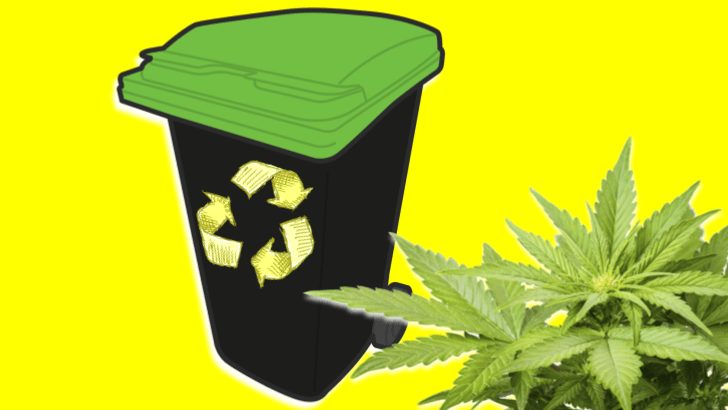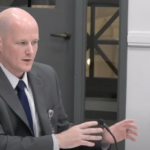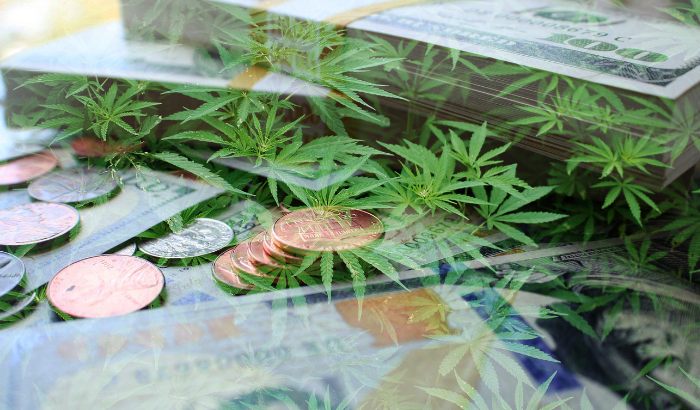
The Massachusetts Cannabis Control Commission (CCC) has put together a state-mandated Energy and Environment Workgroup to set environmental regulations for the industry. The group is chaired by Commissioner Kay Doyle and includes representatives from the Department of Energy Resources, Department of Environmental Protection, and Department of Agricultural Resources.
In their research and subsequent action, one area that deserves attention is the disposal of compostables like trims and stalks from the plant, soil, and nutrients.
Why is this important?
Take Washington state, where the cannabis industry has created 1.7 million pounds of waste since 2014 with no real idea of where it will go. According to the Washington Post, composting companies in Washington have collected little or no cannabis waste, which means that hundreds of thousands of pounds are being sent to landfills.
Composting is more environmentally friendly than landfills because the waste quickly breaks down into usable soil. Compost in a landfill decomposes slowly and generates more methane, a strong greenhouse gas.
DigBoston reached out to all the dispensaries in Mass that were approved to sell cannabis before 2018, asking if they have a waste disposal plan in place. None responded to our inquiries about where they are taking their compostables.
Businesses in Mass that create organic waste may not have a choice of whether to compost. Under one scenario, Massachusetts by 2024 could be left with only one operating landfill, in Middleborough, with a yearly capacity of 60,000 tons.
Aware of the problem, the MassDEP has taken action to divert waste away from landfills. In 2014 it imposed the Commercial Food Material Disposal Ban. Businesses and institutions that dispose of one or more tons of food waste per week have to send all of it to a compost site. They haven’t faced opposition from businesses either; according to a 2014 article in the Boston Globe, some hospitals and grocery chains were already preparing to buy dehydrators and digesters to reduce their waste.
That kind of upfront investment might not be easy for businesses in the cash-based cannabis industry. Nonetheless, where is the waste going? Since dispensaries are staying quiet, let’s make some guesses.
Maybe making it ready for compost is too complicated. Because cannabis is a Schedule I Controlled Substance, pot producers have to grind up their plant waste and mix it 50/50 with non-cannabis waste to make it unusable. Only then can it be composted. But they have to do that regardless of where they take it, so isn’t it easier to let a compost site cut it up with their own waste?
Maybe it’s tough for them to transport the cannabis to a compost site. If the compost company near them doesn’t pick up, that’s a cost for sure. But they’d have to do the same for a landfill, and landfill scarcity in Mass makes for some of the nation’s highest dumping fees. The fees at compost or biogas facilities are often lower, or even free because rotting plant waste is their bread and butter.
It could be the dispensaries are using unapproved pesticides and don’t want that in reusable compost. The negative consequences of this are so high that this is unlikely, but let’s say it happens. Whatever. Compost companies accept food waste that’s grown with pesticides all the time.
Perhaps stubborn community agreements make composting impossible. Half of Massachusetts towns have either banned or placed a moratorium on cannabis businesses in their borders and, of the towns that have accepted them, it is often more with caution than enthusiasm. This leaves the cannabis businesses in a weak bargaining position when working out agreements. Nature’s Remedy was recently granted a special permit to open a production and retail dispensary in Lakeville Industrial Park, but the community rejected the proposed outdoor composting facility because of worry about odor and security.
So maybe it is the bans and moratoriums. We spoke to eight compost companies and all said they’d be happy to take cannabis waste, but there is a significant crossover between the 190 commonwealth municipalities that have either placed a moratorium on or banned cannabis enterprises, and the locations of the Bay State’s 220 compost sites. They probably couldn’t take cannabis waste even if they wanted to.
John Fischer, chief of commercial waste reduction and waste planning at MassDEP, isn’t worried that the cannabis industry will make much of an impact on landfill space. “When we look at overall waste, Massachusetts produces five and a half million tons a year. We compost hundreds of thousands of tons. As far as the cannabis industry is concerned, the impact would be a small part of that overall waste.”
Maybe he’s right. The 1.7 million pounds of cannabis waste in Washington state are a result of severe overproduction, which is not currently a problem here.
In any case, Commissioner Doyle and her CCC environmental working group are exploring potential solutions for an industry that leaves an extraordinarily heavy carbon footprint.
Says Doyle: “Working with experts from Massachusetts and other states, industry representatives, and members of the public, the Energy and Environment Workgroup will evaluate, on an ongoing basis, ways to reduce energy and water usage in the marijuana industry to mitigate environmental impacts and advance industry best practices.”
Hopefully they’ll also discuss where the excess grown from all that light and water will end up.
























